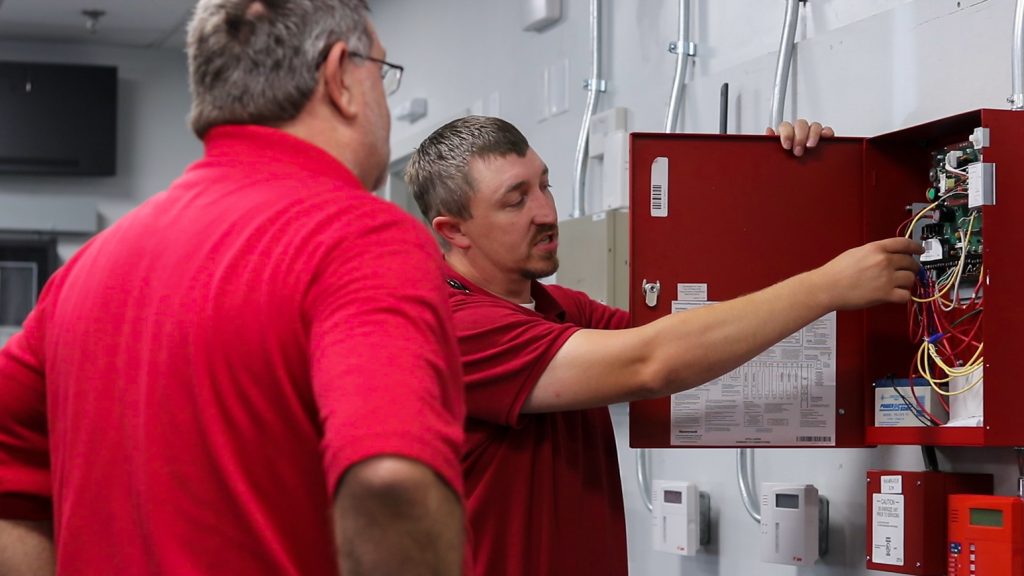A fire alarm system is an essential safety measure that helps protect lives and property. It is an integral part of fire safety, and it’s important to understand how it works and how it can help save lives in the event of a fire.
- Early Detection of Fire and Smoke
The most important role of a fire alarm system is to detect the presence of smoke and fire. The system consists of smoke detectors, heat detectors, and manual pull stations. Smoke detectors are designed to detect the presence of smoke, while heat detectors are able to detect an increase in temperature. Manual pull stations are used to manually activate the fire alarm system in the event of a fire. These devices are installed throughout the building, making it easier to detect a fire before it spreads.
- Alerting People of a Fire
Once a fire has been detected, the fire alarm system will sound an audible alarm to alert people of a fire. This alarm can be heard throughout the building, allowing people to evacuate the building quickly and safely. It is important to note that the alarm should be loud enough to be heard from any point in the building, regardless of how far away the fire is.
- Automatically Notifying the Fire Department
In addition to sounding an audible alarm, the fire alarm system will automatically notify the local fire department when a fire has been detected. This can help the fire department respond quickly, which can help minimize the damage caused by the fire.

- Preventing Fires from Spreading
Another benefit of a fire alarm system is that it can help prevent fires from spreading. By detecting a fire early on and alerting people to evacuate the building, the fire is less likely to spread to other parts of the building or to neigh boring buildings.
- Cost Savings
In addition to helping save lives, a fire alarm system can also help save money. When a fire is detected early, it can help minimize the damage caused by the fire, which can help reduce the cost of repairs. This can help save money on insurance premiums and other costs associated with a fire.
- Early Detection of Carbon Monoxide and Natural Gas
In addition to detecting smoke and fire, some fire alarm systems are also designed to detect carbon monoxide and natural gas. This can be especially beneficial in homes and businesses, as it can alert people to the presence of these dangerous gases before they become hazardous.
- System Monitoring
Many fire alarm systems also offer system monitoring. This allows the system to be monitored remotely, allowing the fire department to be notified of a fire even if no one is present in the building. This can help minimize the damage caused by a fire, as the fire department can respond quickly.









